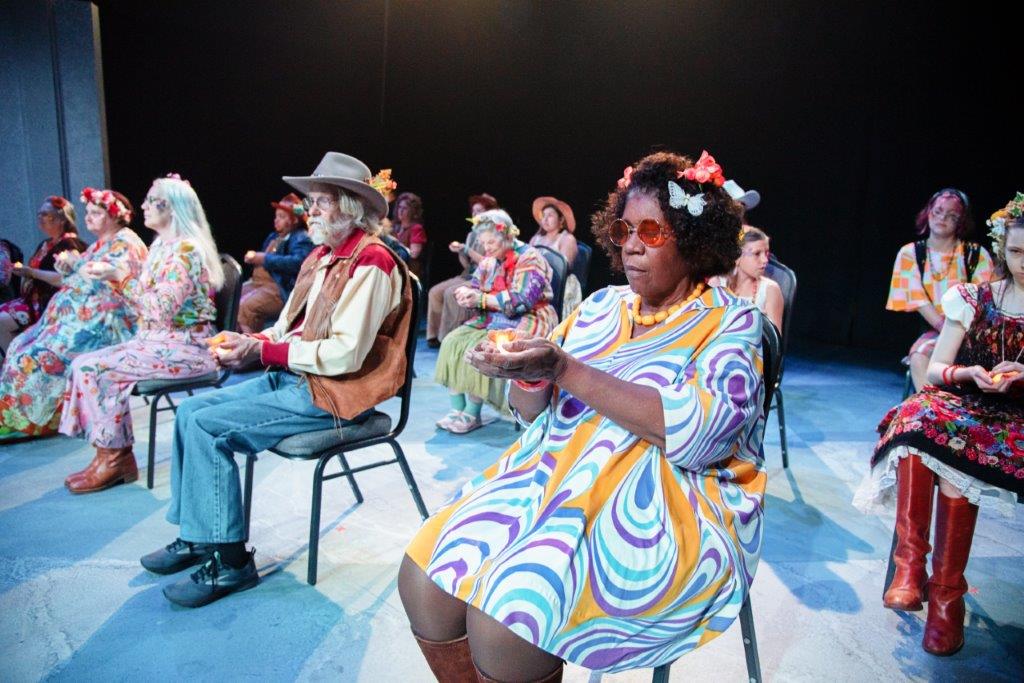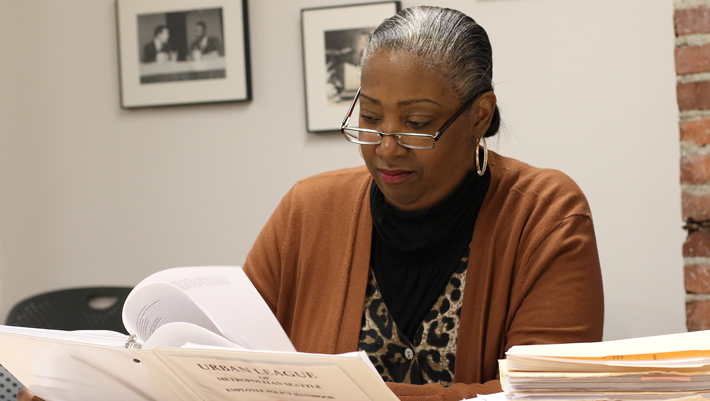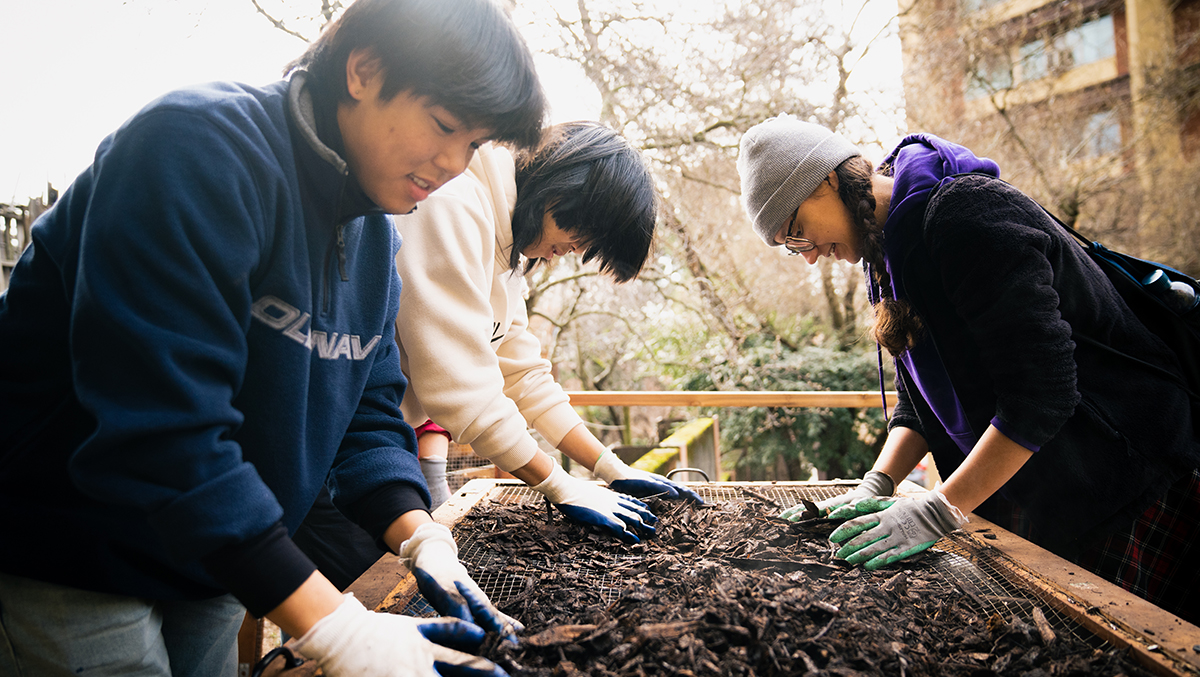
The pilot project, Restaurant 2 Garden is working to create a hyper-local system where food waste from eateries in the Chinatown International District are brought to the Danny Woo Community Garden, composted on site, and distributed to the garden members. The majority of gardeners at Danny Woo are seniors and immigrants or refugees.
We recently connected with Joycelyn Chui, one of the project coordinators from Restaurant 2 Garden, to learn more about the project and the ways it is helping to support the Chinatown International District community.
Can you tell us a bit about your project Restaurant 2 Garden and how it came about?
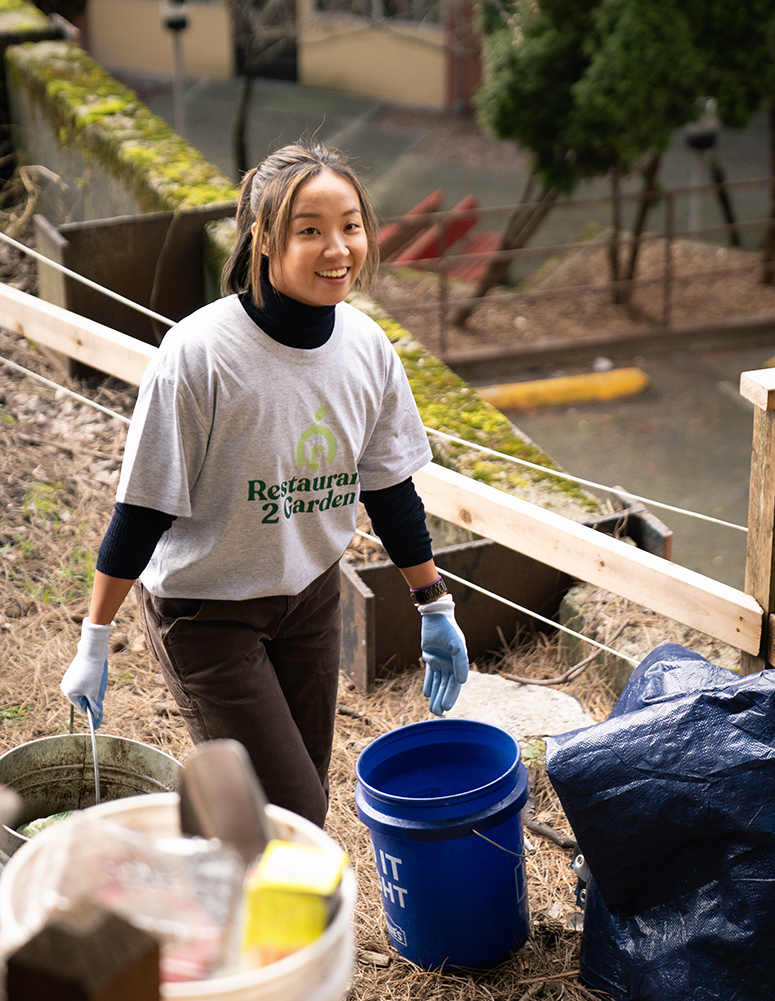
I have a background in environmental consulting. I do a lot of work with municipalities on solid waste and organic space management. I used to work with Seattle Public Utilities doing multicultural outreach in the Chinatown International District neighborhood and helped BIPOC, multilingual business owners increase their composting or recycling rates. So, I saw how much food waste was being produced. During that time, I got to know Lizzy Baskerville, who was the garden manager of Danny Woo Community Garden, and she was saying “We need compost. The compost that the city gives us goes away within a morning.” The two of us came together to start this pilot project, Restaurant 2 Garden. We started talking about it back in 2020, and we launched the pilot in February of 2022. We wanted to start a hyper-local model to see if local food scraps could be composted locally to feed local people.
Right now, we have three people, myself, Lizzy, and Jennifer Cheung. The goal of Restaurant 2 Garden is really to decentralize organics management and to bring it back to the community level to kind of foster that network of community composters. And as we expand, we are kind of thinking about a State policy, HB 1799, that was passed last year that aims to divert 75% of food scraps away from landfills by 2030. So, we’re thinking how can we plug ourselves in?
What restaurants are you working with currently and how did you forge those partnerships?
There is the Panama Hotel Coffee Tea House and Itsumono Seattle. They’re both one block away from the Danny Woo Community Garden and that is where we have our operation, our little composter. In our pilot phase, it’s important to work with food service businesses that are very close, like walking distance close. The partnerships kind of came through organically. Panama Coffee Tea House has been doing it for a while on their own. They used to bring their coffee grounds and tea leaves and whatnot to the garden themselves, but they kind of stopped because of COVID.
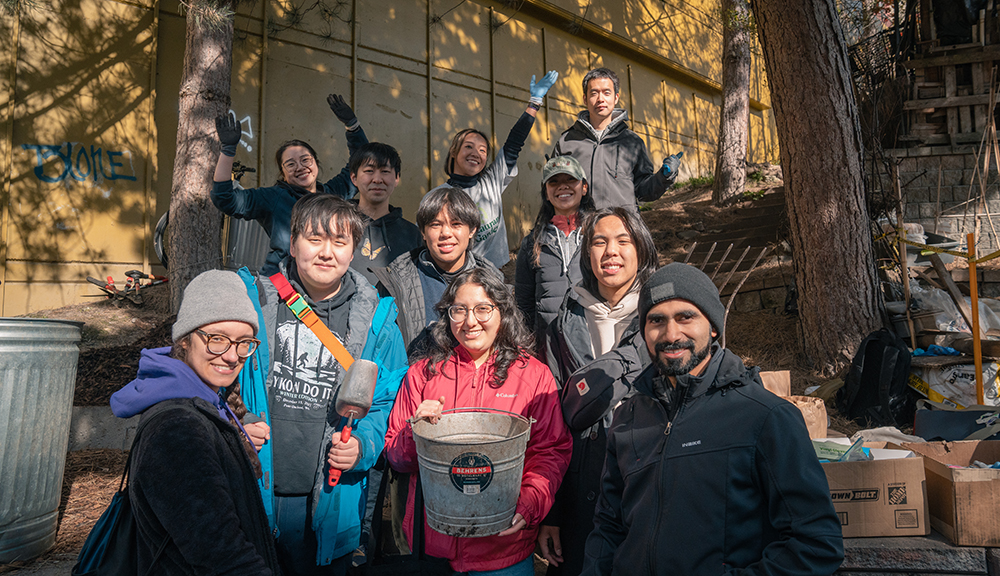
And then there’s Itsumono. That started through personal connection as we know the owners and we know the kitchen staff. So, we just asked if they would be willing to go through this pilot phase with us. And it was incredibly helpful to have them on board to kind of iron out some kinks. We have workdays every Saturday where we go pick up the food scraps from the two restaurants and take it to the garden to process it.
How did the funding from the Neighborhood Matching Fund Small Sparks grant support Restaurant 2 Garden?
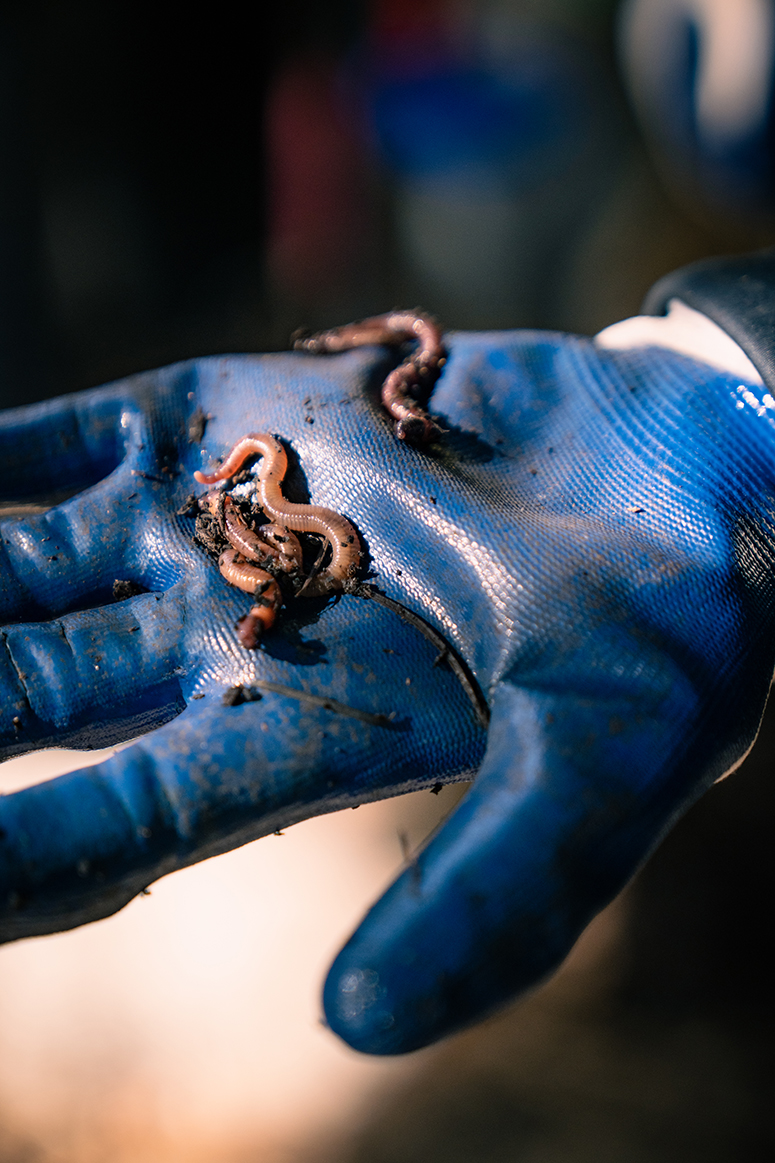
Small Sparks was incredibly helpful when we first started. When we started discussing the concept for this pilot in 2020, we knew we had to do a lot of fundraising to get the project off the ground. And for funders, they like to see something that has a proof of concept already – from our experience at least. This was kind of difficult for us. We tried for several grants and we didn’t get them. Then we got in touch with Karen at the Department of Neighborhoods, and thought this project was a perfect fit for the Small Sparks grant. We used the funding to do what is called vermiculture, or worm composting. We needed some funding for materials like guard pools, buckets, hoses, pitchfork, that sort of stuff, and to also partially purchase the hot composter.
Why is this project so important on both an environmental level and on a community level?
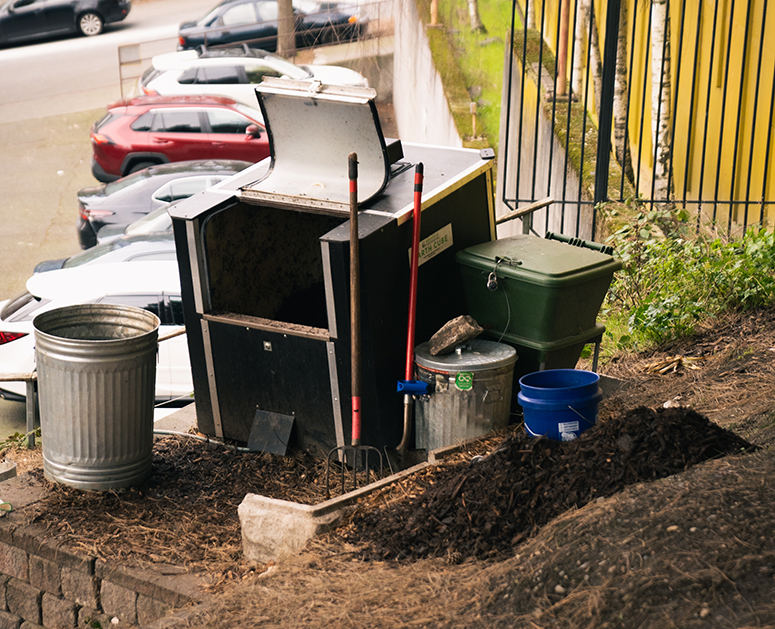
The CID is a suite of consequences. From redlining to environmental injustice. There is less green space and a lot of environmental burden for that community. These communities are majority immigrants and refugees who don’t speak English as a first language and are traditionally disenfranchised in our larger societal system. Danny Woo Community Garden is the only green space in the neighborhood. Most of the gardeners there are over 65. It has a lot of fruit trees, with plots where people can grow their own food. It was important for us to keep that thriving. Gardeners are looking to grow culturally appropriate foods. Things that conventional grocery stores don’t carry. And there is a social aspect in it as well, because as they go out to do gardening, that’s how they meet friends, where they talk to neighbors, and how they get their exercise. There is a heavy social aspect, and that’s why it was important for us to foster this garden. We give out compost for free and they come over. Gardeners are curious, “what are you guys doing? Why does it smell a little bit? What is this smell? Can you give me more compost?” There is a connection with elder gardeners.
A recent soil study from the University of Washington Bothell revealed that both Danny Woo Community Garden and neighboring Yes Farm (in the Yesler Terrace community) have contaminated urban soils with high levels of chemicals like glyphosate, a legacy pollutant from the herbicide applied by the city that can cause irritation in people’s nose and throat in a neighborhood that already has elevated asthma rate. Compost with rich b micro, which has more of an environmental aspect to it.
We actually started in what we called the dangerous corner of the garden. It was kind of unloved. It was overgrown with weeds, no gardeners liked to go over there. A lot of dangerous activity happened in that corner. We cleaned it out, brought in volunteers, and activated land that was kind of forgotten and unloved. And so there is this kind of urban land activation aspect of it. Because of our presence, there more plots are being carved out in that area and people feel safer being in that part of the garden.
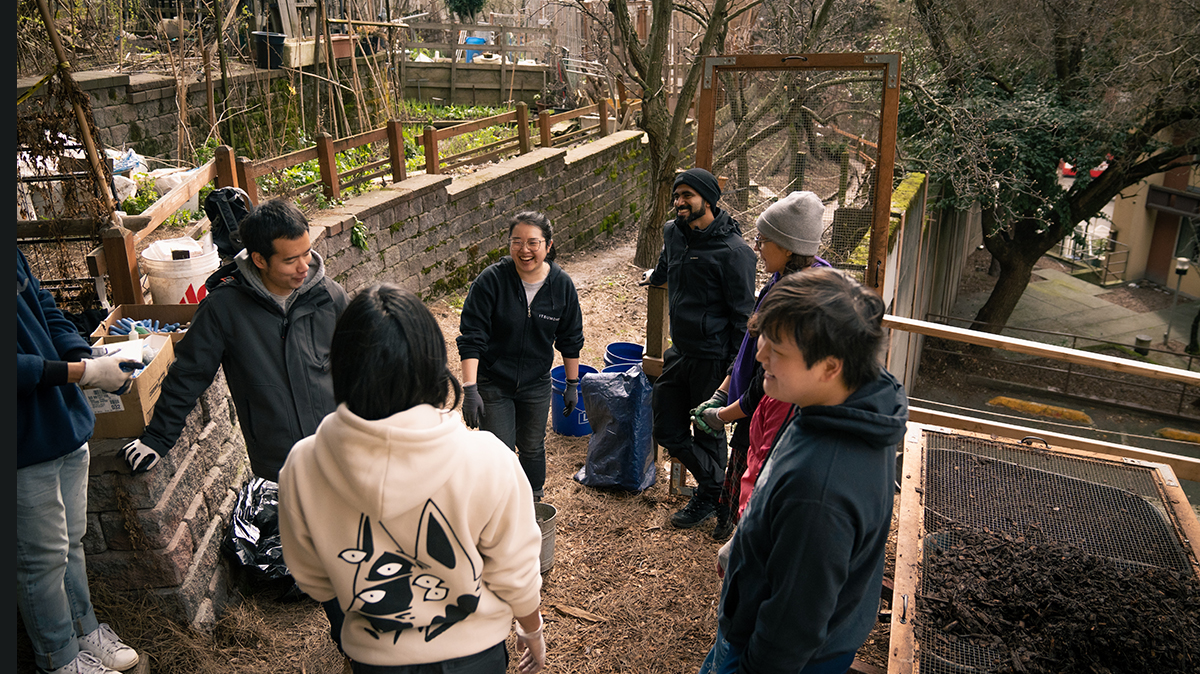
To learn more about Restaurant 2 Garden visit: www.restaurant2garden.com
Neighborhood Matching Fund Small Sparks grants provide up to $5,000 in funding for small community activities such as neighborhood clean-ups, block parties, events, community art projects, workshops, and more. Applications for Small Sparks are accepted on a rolling basis through October 31, 2023. For more information on the fund and how to apply visit: www.seattle.gov/neighborhoods/community-grants/neighborhood-matching-fund

